'The Nightingale' star Sam Claflin: 'I had kids and all of a sudden I started playing villains'
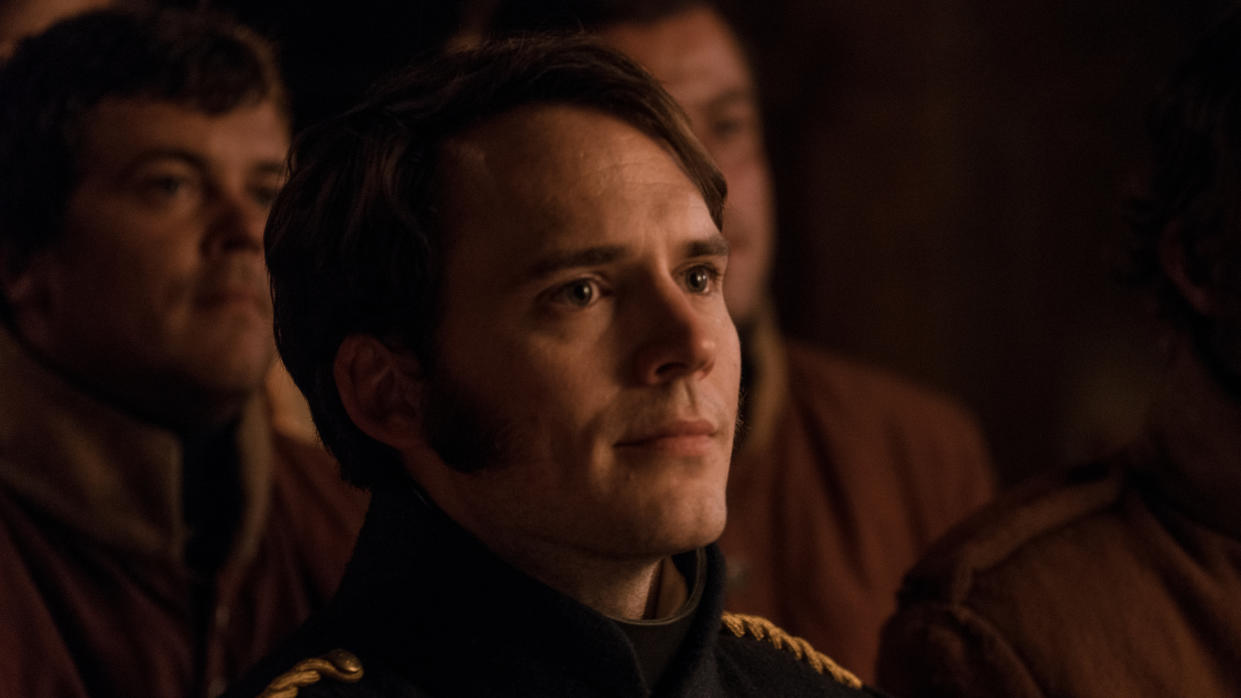
Sam Claflin plays bad guys now.
The actor once known as the dashing, flirtatious Finnick Odair in The Hunger Games and the male lead of romcoms including Love, Rosie and Me Before You is now making a living portraying truly horrible people.
He was the bile-spitting posh boy Alistair Ryle in The Riot Club, the morally ambiguous Philip in My Cousin Rachel and the notorious fascist MP Oswald Mosley in the most recent series of Peaky Blinders.
His latest loathsome role is as the sadistic British Army lieutenant Hawkins in The Nightingale — Aussie director Jennifer Kent’s highly anticipated and already controversial follow-up to The Babadook. The character is a vicious rapist, embroiled in a cat-and-mouse chase through the bush with Clare (Aisling Franciosi), upon whom he has inflicted hideous trauma.
Read more: Claflin praises crime drama Line of Duty
“I don’t think anyone could see many similarities between myself and him,” Claflin tells Yahoo Movies UK.
“As an actor, there’s always something quite attractive about pushing myself and challenging myself in new ways and, I suppose, learning what my limitations are and how comfortable I am to push myself and how far I’m willing to go.”
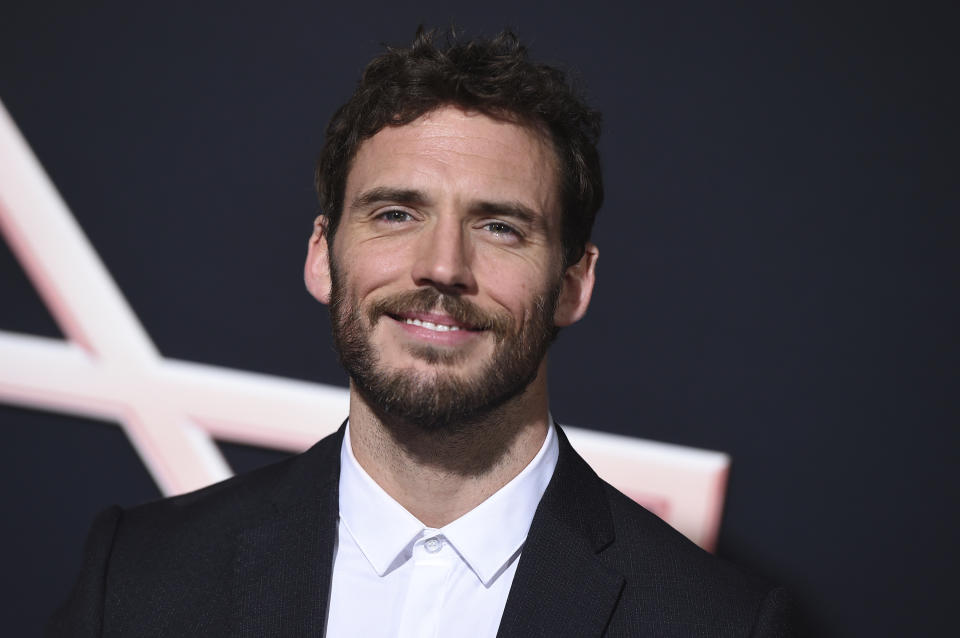
Claflin says he is “relishing the opportunity” to explore darker roles and that the shift in his career came at an unusual moment.
“Strangely, I had kids and all of a sudden I started playing villains,” he adds. “What does that tell you about the psychology of my life?
Read more: Villains who could return in Marvel’s Phase 4
“In all honesty, I think there was a time at the beginning of my career when I was playing very good people and nice people. I suppose I’m just trying to challenge myself and try new things.”
Read the full interview with Sam Claflin in which he discusses the controversial violence of The Nightingale, the tension between blockbuster and indie cinema and his Peaky Blinders future.
Yahoo Movies UK: This is another in a selection of quite horrible characters you’ve played recently. What draws you to people like Hawkins?
Sam Claflin: It’s just so far removed from who I am as a person. I don’t think anyone could see many similarities between myself and him. For me, as an actor, there’s always something quite attractive about pushing myself and challenging myself in new ways and, I suppose, learning what my limitations are and how comfortable I am to push myself and how far I’m willing to go. This is definitely beyond my comfort zone to say the very least.
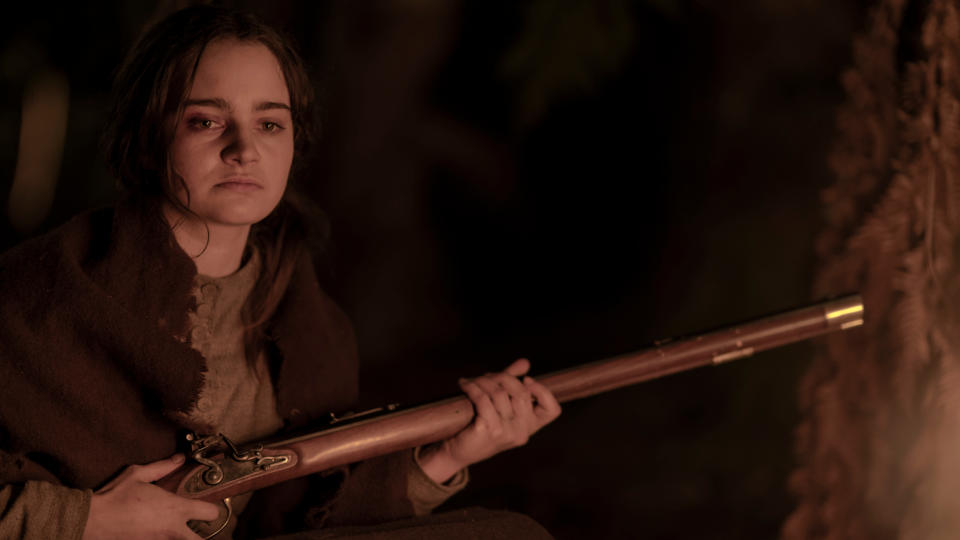
But this is something I felt very privileged to be a part of — having the opportunity to work with Jennifer and having the opportunity to do the research and learn about the world we were depicting. Strangely, it’s a time that’s not much talked about in English history. It’s one of those things that, for some reason, the history books decided to ignore and I think it’s partly to do with the fact we weren’t on our best behaviour. It was really eye-opening for me — learning about a new world and about the beginnings of Australia.
Was this a difficult story to tell as an English actor, given how badly we come across?
There’s plenty the English have reason to be humiliated by in their actions throughout history. But I didn’t really over-think it in that respect. I just wanted to challenge myself as an actor. I was learning as we were going. I accepted the job and found the darkness of the time quite alluring to me. It’s fascinating. As much as it’s not based on a real person’s story, I am sure it’s based on thousands of real people in some way.
I think that’s what I really enjoyed about Jennifer’s depiction. She really challenges the audience. There’s a lot of truth to it. She took a risk and it’s a very honest depiction.
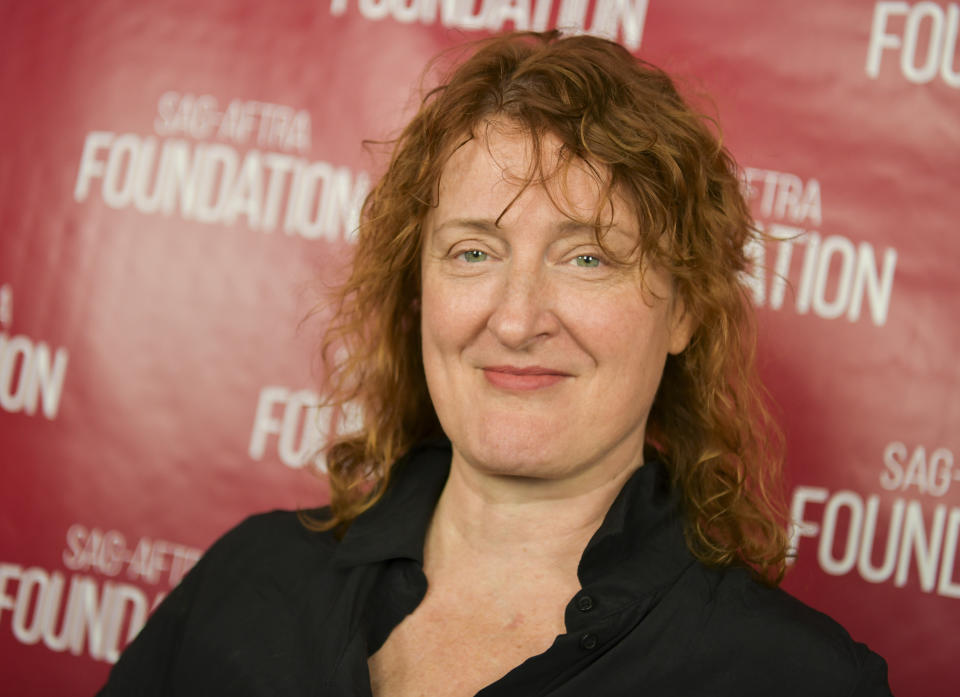
Was Jennifer a filmmaker who was already on your radar as somebody you wanted to work with?
I had seen The Babadook. My knowledge generally of writers and directors is pretty limited, but I was such a fan of The Babadook and the genre of movie that was. I found it such a unique, compelling and original story. I remember it coming out and me feeling that it was so lovely and refreshing to go to the cinema and watch something completely original. I found it spell-binding. It all happened in basically one room, with a very small budget and just incredible performances.
After meeting Jennifer, I quickly realised that she is a director I would love to work with. She’s from an acting world and studied acting, I think at the same time as Cate Blanchett at NIDA [National Institute of Dramatic Art in New South Wales]. I just found it really fascinating that she was approaching it from a very actor-orientated direction. As an actor, working with a director who loves and focuses on the acting, that’s the kind of work I want to be doing. I want to focus on character pieces as opposed to the opposite.
Read more: Scorsese pens op-ed on Marvel comments
There’s a lot of talk at the moment of risk taking versus safe, corporate-conscious filmmaking, specifically with comic book movies. You’ve been at both ends of the movie landscape, so where do you sit on that?
I go where the work is really, if there’s a compelling story and an interesting character. Be it another Spider-Man or a brand new Martin Scorsese — I wouldn’t say ‘no’ to either, honestly. For me, it’s a different genre of movie and I don’t think you can put the two in one basket. I enjoy, personally, going to the cinema and watching both. I enjoy both genres and both types of movie for different reasons.
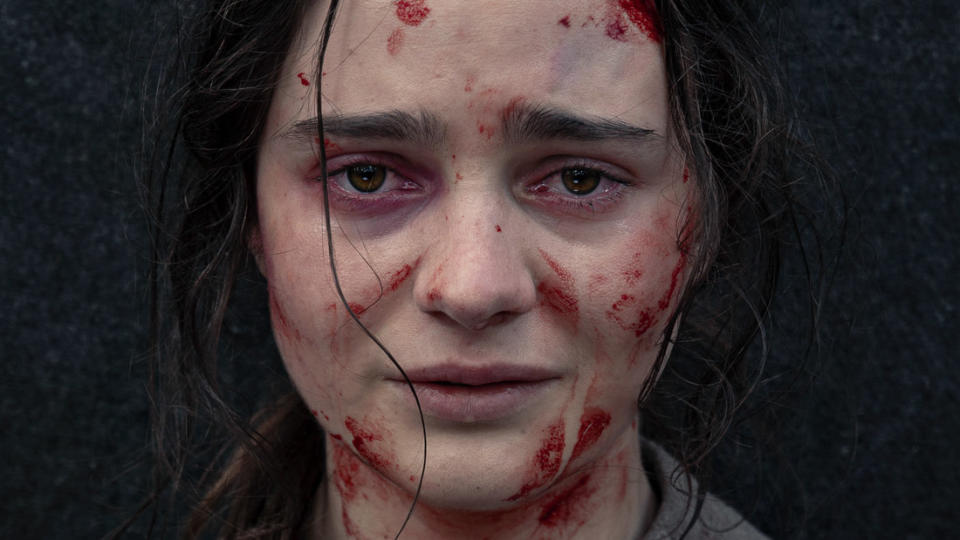
You might say that one is more artistic, or whatever, but I think they’re both incredibly artistic in very different ways. It’s impossible to compare the two really. I read an article and Scorsese had said that the upsetting thing is that people have stopped going to the cinema to watch the smaller, independent kind of movies.
Because of the cost of cinemas, I think. Netflix is easier. It’s easier to switch on the telly at home than it is to get out and spend X amount of money in a cinema, where it’s quite an intimate piece.
Read more: How to improve the cinema experience
Personally, as a film lover and an art lover, I enjoy going to watch both at the cinema. I think that’s the only way you can get a real feel for the atmosphere the director is going for.
A lot of your choices as an actor really speak to that level of risk, and I want to talk about some of the controversial subject matter in this film. It’s arriving on the cusp of #MeToo and has all of this material about violence against women. How important is it for you to confront timely and difficult subject matter?
I think Jennifer has answered it the best when this sort of question comes up. She has said she didn’t want to shy away any more. These women who go through these traumatic experiences, they are still very much at the forefront of our society now. The #MeToo movement is only testament to how much those events are still taking place.
I feel that what is amazing about a film like this is that it is proving to people we have been turning a blind eye to it. It’s very confrontational. It’s putting it out there and saying: “This is how violent the world can be. This is the truth.”
I think that’s one thing Jennifer wanted to make sure of. She wanted to have a very honest depiction of the trauma a woman went through at that time. It’s not comfortable viewing and it’s not a happy film, necessarily. But it takes a risk and takes a plunge into reality. That’s probably more scary than The Babadook — and it’s confrontational.
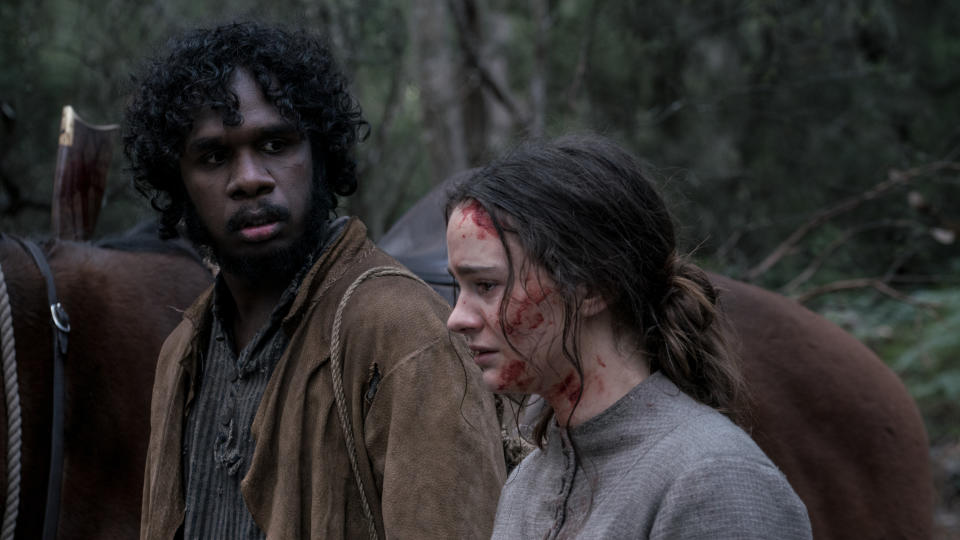
At the Venice Film Festival, someone walked out. It is confrontational and I admire Jennifer’s courage and her boldness in creating a story and characters like this. I think it’s more relevant now than ever before and that’s good. It’s a good thing. It’s a good conversation to be having. It’s good that we are asking these questions and we are answering them.
I wanted to ask very briefly about another very controversial character you played — Oswald Mosley in the fifth season of Peaky Blinders. Like we said at the start, he’s another awful man from history...
There’s a pattern emerging! Strangely, I had kids and all of a sudden I started playing villains. What does that tell you about the psychology of my life? In all honesty, I think there was a time at the beginning of my career when I was playing very good people and nice people. I suppose I’m just trying to challenge myself and try new things. Part of me is aware that I’m relishing the opportunity to push myself further than ever before.
Read more: Peaky Blinders creator defends violence
But I was such a fan of Peaky Blinders that I probably would’ve played any character they offered. I was very fortunate that it was as juicy and complex a part as a man like Oswald Mosley. Again, I knew nothing about him. I had never even heard his name mentioned prior to me getting a call. It was another very eye-opening experience researching him and watching old videos and interviews, hearing the method to his madness. It was very interesting to say the least.
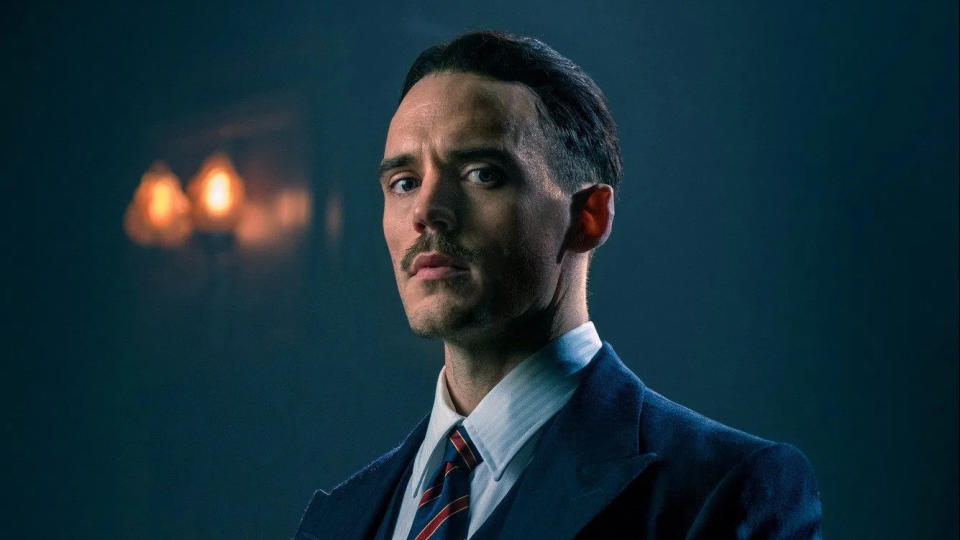
Can you give us any hint as to whether we can expect more in series six?
I cannot tell you a thing. I wish I could, honestly, as a fan of the show. It’s definitely something I’m keen to know more about as well. I know that they are in the process of writing series six. I still don’t know whether I’m involved. I hope that I am, knowing I did survive the onslaught of the Peaky Blinders.
I can only hope. As a fan of the show and a fan of literally everyone who works on that production, I would love to be involved again.
The next thing we’ll see you in is Charlie’s Angels. Is there anything you can say about the experience of making that film?
It was very short for me. Honestly, I’m not heavily involved. I’m featured, but it’s not something to write home about. But, as the father of a girl, the angle that it takes is an incredible story for a female audience, while there’s enough action in it to keep everyone entertained. It was a really fun job. I got a phone call from Elizabeth Banks asking whether I’d be interested and of course I said yes. I’m such a fan of her work and loved working with her on Hunger Games.
I’m excited for the world to see it. It’s really fun, really entertaining and a unique take on a very classic tale.
The Nightingale is in UK cinemas from 29 November.

 Yahoo Movies
Yahoo Movies 
